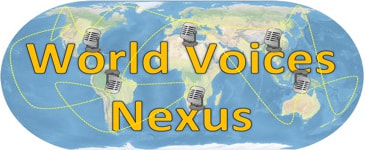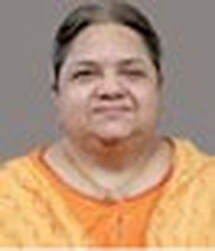- Home
- About WVN
-
WVN Issues
- Vol. 1 No. 1 (Oct. 2017) >
- Vol. 2 No. 1 (Feb. 2018) >
- Vol. 2 No. 2 (Jun. 2018) >
- Vol. 2 No. 3 (Oct. 2018) >
- Vol. 3 No. 1 (Feb. 2019) >
- Vol. 3 No. 2 (Jun. 2019) >
- Vol. 3 No. 3 (Oct. 2019) >
- Vol. 4 No. 1 (Feb. 2020) >
- Vol. 4 No. 2 (Jun. 2020) >
- Vol. 4 No. 3 (Oct. 2020) >
- Vol. 5 No. 1 (Feb. 2021) >
- Vol. 5 No. 2 (Jun. 2021) >
- Vol. 5 No. 3 (Oct. 2021) >
- Vol. 6 No. 1 (Feb. 2022) >
- Vol. 6 No. 2 (Jun. 2022) >
- Vol. 6 No. 3 (Oct. 2022) >
- Vol. 7 No. 1 (Feb. 2023) >
- Vol. 7 No. 2 (Jun. 2023) >
- Vol. 7 No. 3 (Oct. 2023) >
- Vol. 8 No. 1 (Feb. 2024) >
-
Events
- CIES 2023, Feb. 14-22, Washington D.C., USA
- ICES 4th National Conference, Tel Aviv University, Israel, 20 June 2021
- 2022 Virtual Conference of CESHK, 18-19 March 2022
- ISCEST Nigeria 7th Annual International Conference, 30 Nov.-3 Dec. 2020
- 3rd WCCES Symposium (Virtually through Zoom) 25-27 Nov. 2020
- CESA 12th Biennial Conference, Kathmandu, Nepal, 26-28 Sept. 2020
- CESI 10th International Conference, New Delhi, India, 9-11 Dec. 2019
- SOMEC Forum, Mexico City, 13 Nov. 2018
- WCCES Symposium, Geneva, 14-15 Jan. 2019
- 54th EC Meeting, Geneva, Switzerland, 14 Jan. 2019
- XVII World Congress of Comparative Education Societies, Cancún, Mexico, 20-24 May 2019
- ISCEST Nigeria 5th Annual Conference, 3-6 Dec. 2018
- CESI 9th International Conference, Vadodara, India, 14-16 Dec. 2018
- ICES 3rd National Conference, Ben-Gurion University, Israel, 17 Jan. 2019
- WCCES Retreat & EC Meeting, Johannesburg, 20-21 June 2018
- WCCES Symposium, Johannesburg, 21-22 June 2018
- 5th IOCES International Conference, 21-22 June 2018
- International Research Symposium, Sonepat, India, 11-12 Dec. 2017
- WCCES Info Session & Launch of Online Course on Practicing Nonviolence at CIES, 29 March 2018
- WCCES Leadership Meeting at CIES, 28 March 2018
- 52nd EC Meeting of WCCES, France, 10-11 Oct. 2017
- UIA Round Table Asia Pacific, Chiang Mai, Thailand, 21-22 Sept. 2017
- Online Courses
|
Abstract
The COVID-19 pandemic has created an unprecedented and unexpected disruption worldwide since 2020. There were 130 country-wide closures that affected 70% of the world’s student population and approximately a hundred million learners as of February 2021 (UNESCO, 2021). This caused a significant paradigm shift in instructional delivery mode from face-to-face to online or virtual learning environments. The COVID-19 pandemic and resulting lockdowns caused serious disturbances in many fields of education including teacher education. The training dimension of teacher preparation that was hardest hit was the pre-service practicum. Due to the locked down, prospective teachers were deprived of the ‘established field experience and actual classroom teaching practices in authentic school settings. It is noteworthy that various practicum modalities were unfolded all over the world and these are documented in many study reports published during 2020 and early 2021 (Donitsa-Schmidt & Ramot, 2020; Ellis et al., 2021; Zhang et al., 2020). These studies present detailed exposition about the impact of COVID-19 on the pre-service teacher education. They help us to explore how pedagogies got adapted when students-teachers, school teachers and teacher educators moved to new online spaces. These studies also help us to understand how established teaching practices changed quickly, with pre-service teachers showing an immense disposition for change. Despite many challenges this ‘emergency practicum’ caused, including anxiety, a number of benefits were noted. They include: ● In addition to learning how to teach, pre-service teachers also learned how to teach online – a valuable and required competency in the 21st century world. ● A change in attitude towards technology enhanced teaching- learning among the teaching community. ● Increase in interactivity, relatedness and professional learning among the teaching community. ● The most important benefit to our mind is the student- teachers, school teachers and the teacher educators made very sincere efforts for humanising their pedagogies there by making the learning accessible, engaging and inclusive for all the learners. All these gains should not be left behind when we move ahead. They should be included in our future re-engineering of teacher education. Keeping in view the crucial role of teachers in the post COVID period it is essential to conceptualise teacher education. This process would involve: ● Identifying the characteristics of the teachers, needed for facing the challenges in the education system due to any unforeseen situations ● Defining the elements of a teacher education programme, that can prepare teachers for changing such challenges into opportunities. ● Identifying the Institutional, State or National policy structure that can support such a programme for the preparation of teachers. ● Reinventing the role of teachers that can contribute to the transformation of the education system to make it inclusive, humanistic and global for today’s diverse learners. . This paper proposes a framework of teacher education program based on equity and social justice, technology enhanced quality curricular practices and multilevel collaborations for post- COVID- 19 India. Keywords: Teacher education, Reimagining and reengineering, post-COVID19, Equity and social justice 1. Introduction The COVID-19 pandemic has created an unprecedented and unexpected disruption worldwide since 2020. There were 130 country-wide closures that affected 70% of the world’s student population and approximately a hundred million learners as of February 2021 (UNESCO, 2021). This caused a significant paradigm shift in instructional delivery mode from face-to-face to online or virtual learning environments. The COVID-19 pandemic and resulting lockdowns caused serious disturbances in many fields of education including teacher education. The training dimension of teacher preparation, which was hardest hit was the pre-service practicum. Due to the locked down, prospective teachers were deprived of the ‘established field experience and actual classroom teaching practices in authentic school settings. It is noteworthy that various practicum modalities were unfolded all over the world and these are documented in many study reports published during 2020 and early 2021. (Donitsa-Schmidt & Ramot, 2020), (Ellis et al 21], (Zhang, W., Wang, Y., Yang, L., & Wang, C. 2020). These studies present detailed exposition about the impact of COVID-19 on the pre-service teacher education. They help us to explore how pedagogies got adapted when students-teachers, school teachers and teacher educators moved to new online spaces. These studies also help us to understand how established teaching practices changed quickly, with pre-service teachers showing an immense disposition for change. Despite many challenges this ‘emergency practicum’ caused, including anxiety, a number of benefits were noted. They include: ● In addition to learning how to teach, pre-service teachers also learned how to teach online – a valuable and required competency in the 21st century world. ● A change in attitude towards technology enhanced teaching- learning among the teaching community. ● Increase in interactivity, relatedness and professional learning among the teaching community. ● The most important benefit to our mind is the student- teachers, school teachers and the teacher educators made very sincere efforts for humanising their pedagogies there by making the learning accessible, engaging and inclusive for all the learners. All these gains should not be left behind when we move ahead. They should be included in our future re-engineering of teacher education. Keeping in view the crucial role of teachers in the post COVID period it is essential to re-conceptualise the teacher education. This process would involve: ● Reinventing the role of teachers that can contribute to the transformation of the education system to make it inclusive, humanistic and global for today’s diverse learners. ● Defining the elements of a teacher education programme, that can prepare teachers for changing any unforeseen challenge into opportunities. Hence this paper intends: 1. To identify the key concerns of teacher education for the changed post—COVID-19 India; and 2. To propose a framework of teacher education programs based on equity and social justice, technology enhanced quality curricular practices and multilevel collaborations for the same. 2. Method The authors widely used the online database of Educational Resources Information Centre (ERIC) to search pertinent published articles. Among the web-based service providers were ScienceDirect, Wiley Online Library, Taylor & Francis. Additional information on relevant studies was searched using Google Scholar. All the articles were scanned to retrieve the related studies on teacher education programs for post-COVID-19and ICT integration in teacher education. The literature reviewed included concept papers, research studies and government documents. The literature was qualitatively analysed and conclusions were drawn based on the objectives. 3. Discussion This section presents the discussion on the following points: a. Key Concerns of Teacher Education for Post- COVID-19 India b. Proposed Framework of Teacher Education for Post-COVID- 19 India a. Key Concerns of Teacher Education for Post- COVID-19 India Teacher education system should be planned in such a way, which could support present and future teachers in becoming more resilient to crises we may come across in future, similar to COVID-19. For this a variety of content based on multi-disciplinary approach, pedagogies of inquiry, inclusion and collaboration for humanising the learning and robust practicum training is the need of the time. This process of teacher preparation should focus on four key dimensions namely: “Connect”, “Communicate “, “Collaborate” and “Co-construct”. In this process, along with other factors like availability of financial resources, innovative curriculum, quality infrastructure etc, information and communication technology (ICT) can become a catalyst. b. Proposed Framework of Teacher Education for Post-COVID- 19 India The proposed framework of teacher education requires an overhauling of teacher education. It should happen at four levels: I. Redesigning the curriculum The efforts in this direction should focus on: ● Multi-disciplinary approach to content designing ● Providing big basket of electives for the prospective teachers to choose from ● Pedagogies for offline as well as online teaching ● Choice based credit system ● Flexibility in curriculum planning II. Curriculum transaction Keeping in view the experiences for the last two years, the curriculum of teacher education can be transacted in a blended mode. Following are some of the ideas suggested in this context: ⮚ Using flipped learning approach for content delivery- Teacher educators can provide content to the students in the form of presentations, documents and videos before conducting the class. Allow the students to go through the content and prepare their notes or queries or even reflective comments, the same can be discussed in the classroom interactions. ⮚ Using digital platforms- For sharing the course content teachers can use platforms like Edmodo, CANVAS, Moodle or Google classroom. ⮚ Creating LMS- The institutions can have their own LMS which can be used to disseminate course content. Students can share their learning doubts on the same learning platform. ⮚ Creating discussion forums and blogs- Discussion forums or teachers’ blogs can help to conduct the discussions on various educational issues. ⮚ Using collaborative learning strategies- Teachers can plan collaborative group activities, group discussions, and group tasks, projects for meaningful engagement of the learners in the classroom or outside of the classroom. ⮚ Giving opportunity for exploring vast e-resources– The teacher can acquaint the learners with the available knowledge reservoirs for enriching their learning experiences. ⮚ They may include: - Knowledge repositories - e-content repositories. - Websites - MOOCs (Massive Open online Courses) -E-journals -Open- education Resources for Teacher Educators, Teachers and Learners -Using creative assignments- The teachers can give assignments which would require application of ICTs. They may include: -Creating blogs; - Creating website; - Observing innovative video lessons based on various strategies and writing review of them; - Designing ICT enhanced learning activities individually or collaboratively and creating a repository of them; - Visiting various websites and access policy and other landmark documents and writing critical reviews; -Writing book/ article reviews; - Developing educational case –based vignettes; - Designing audio-visual materials for teaching practices etc. Preparation of prospective teachers for future classroom This domain of teacher preparation should include: ● Development of digital pedagogical competencies, etiquettes and ethics for online as well as for offline teaching ● Equipping preservice teachers with pedagogies of inquiry, inclusion and collaboration ● Development of TPACK among the preservice teachers ● Capacity building of preservice teachers for developing digital learning resources and open educational resources ● Promoting reflective practices ● Capacity building of pre-service teachers for providing timely support for students’ mental and emotional health and well-being. 4. Extension This domain of teacher preparation should facilitate the creation of a learning community consisting of pre-service and in-service teachers, leadership at schools and teacher education institutions levels, teacher educators, parents and community at large. This learning community should engage in constructive dialogue and collaborate to take action for powering up the education system. It should also engage in participatory research, creating ecosystems for quality support for learners and capacity building of teachers and teacher educators along with parental education. 5. Conclusion It is the need of the hour that teacher education must prepare teachers for the roles of being an encouraging, supportive and humane facilitator in a teaching- learning situation, in order to make teacher education more sensitive to the emerging demands of the post- COVID- 19 Indian society. Hence, the reimagining of teacher education for the upcoming future would require us to think differently and creatively. Acknowledgements: Dr Narendra D Deshmukh acknowledges the support of the Government of India, Department of Atomic Energy, under Project Identification No. RTI4001. References ● Castek, J., & Manderino, M. (2017). A planning framework for integrating digital literacies and disciplinary learning. Journal of Adolescent & Adult Literacy, 60(6), 697–700. https://doi.org/10.1002/jaal.637 ● DeMeester, K. (2013). Teacher beliefs and technology integration. Teaching and Teacher Education, 29, 76-85. ● Hodges et al.: Teacher Education in the Time of COVID-19. Published by ScholarWorks @ UVM, 2020 teacher education. Peabody Journal of Education, 89(4), 547-561. ● Kesson, K. (2020). We are all un-schoolers now. Middle Grades Review, 6(1), Article 2. ● Kim, C., Kim, M. K., Lee, C., Spector, J. M., & Miller, E. M. (2020). The COVID-19 Pandemic crisis: The loss and trauma event of our time. Journal of Loss and Trauma. https://doi.org/10.1080/15325024.2021759217 ● Pape, B., & Lopez-Aflitto, W. (2020, March 24). Responding to COVID-19: How are the children? Digital Promise: Accelerating Innovation in Education. https://digitalpromise.org/2020/03/24/responding-to-covid-19-how-are-thechildren/ ● Sparks, S. (2020, April 10). Coronavirus and school research is a major disruption and potential opportunity. Education Week. https://www.edweek.org/technology/coronavirus-and-school-research-a-major-disruption-and-potential-opportunity/2020/04. https://www.edweek.org/technology/Teitcher ● Singh, V., & Thurman, A. (2019). How many ways can we define online learning? A systematic literature review of definitions of online learning (1988-2018). American Journal of Distance Education, 33(4), 289–306. https://doi.org/10.1080/08923647.2019.1663082 ● UNESCO (2020).COVID-19 Educational Disruption and Response. https://en.unesco.org/covid19/educationresponse.https://en.unesco.org/covid19/educationresponse. Accessed 15 April 2020. ● Tate, E. (2020, May 5). What teachers wish the public knew about their jobs during COVID-19. Teaching & Learning. Middle Grades Review, Vol. 6, Iss. 2 [2020], Art. 4 https://scholarworks.uvm.edu/mgreview/vol6/iss2/4https://www.edsurge.com/news/2020-05-05-what-teachers-wish-the-publicknew-about-their-jobs-during-covid-https://www.edsurge.com/news/2020-
0 Comments
|
AuthorsDr. Narendra D. Deshmukh &
Dr. Kalpana Kharade K. J. Somaiya College of Education, Training and Research Mumbai, India ArchivesCategories |
- Home
- About WVN
-
WVN Issues
- Vol. 1 No. 1 (Oct. 2017) >
- Vol. 2 No. 1 (Feb. 2018) >
- Vol. 2 No. 2 (Jun. 2018) >
- Vol. 2 No. 3 (Oct. 2018) >
- Vol. 3 No. 1 (Feb. 2019) >
- Vol. 3 No. 2 (Jun. 2019) >
- Vol. 3 No. 3 (Oct. 2019) >
- Vol. 4 No. 1 (Feb. 2020) >
- Vol. 4 No. 2 (Jun. 2020) >
- Vol. 4 No. 3 (Oct. 2020) >
- Vol. 5 No. 1 (Feb. 2021) >
- Vol. 5 No. 2 (Jun. 2021) >
- Vol. 5 No. 3 (Oct. 2021) >
- Vol. 6 No. 1 (Feb. 2022) >
- Vol. 6 No. 2 (Jun. 2022) >
- Vol. 6 No. 3 (Oct. 2022) >
- Vol. 7 No. 1 (Feb. 2023) >
- Vol. 7 No. 2 (Jun. 2023) >
- Vol. 7 No. 3 (Oct. 2023) >
- Vol. 8 No. 1 (Feb. 2024) >
-
Events
- CIES 2023, Feb. 14-22, Washington D.C., USA
- ICES 4th National Conference, Tel Aviv University, Israel, 20 June 2021
- 2022 Virtual Conference of CESHK, 18-19 March 2022
- ISCEST Nigeria 7th Annual International Conference, 30 Nov.-3 Dec. 2020
- 3rd WCCES Symposium (Virtually through Zoom) 25-27 Nov. 2020
- CESA 12th Biennial Conference, Kathmandu, Nepal, 26-28 Sept. 2020
- CESI 10th International Conference, New Delhi, India, 9-11 Dec. 2019
- SOMEC Forum, Mexico City, 13 Nov. 2018
- WCCES Symposium, Geneva, 14-15 Jan. 2019
- 54th EC Meeting, Geneva, Switzerland, 14 Jan. 2019
- XVII World Congress of Comparative Education Societies, Cancún, Mexico, 20-24 May 2019
- ISCEST Nigeria 5th Annual Conference, 3-6 Dec. 2018
- CESI 9th International Conference, Vadodara, India, 14-16 Dec. 2018
- ICES 3rd National Conference, Ben-Gurion University, Israel, 17 Jan. 2019
- WCCES Retreat & EC Meeting, Johannesburg, 20-21 June 2018
- WCCES Symposium, Johannesburg, 21-22 June 2018
- 5th IOCES International Conference, 21-22 June 2018
- International Research Symposium, Sonepat, India, 11-12 Dec. 2017
- WCCES Info Session & Launch of Online Course on Practicing Nonviolence at CIES, 29 March 2018
- WCCES Leadership Meeting at CIES, 28 March 2018
- 52nd EC Meeting of WCCES, France, 10-11 Oct. 2017
- UIA Round Table Asia Pacific, Chiang Mai, Thailand, 21-22 Sept. 2017
- Online Courses



 RSS Feed
RSS Feed
